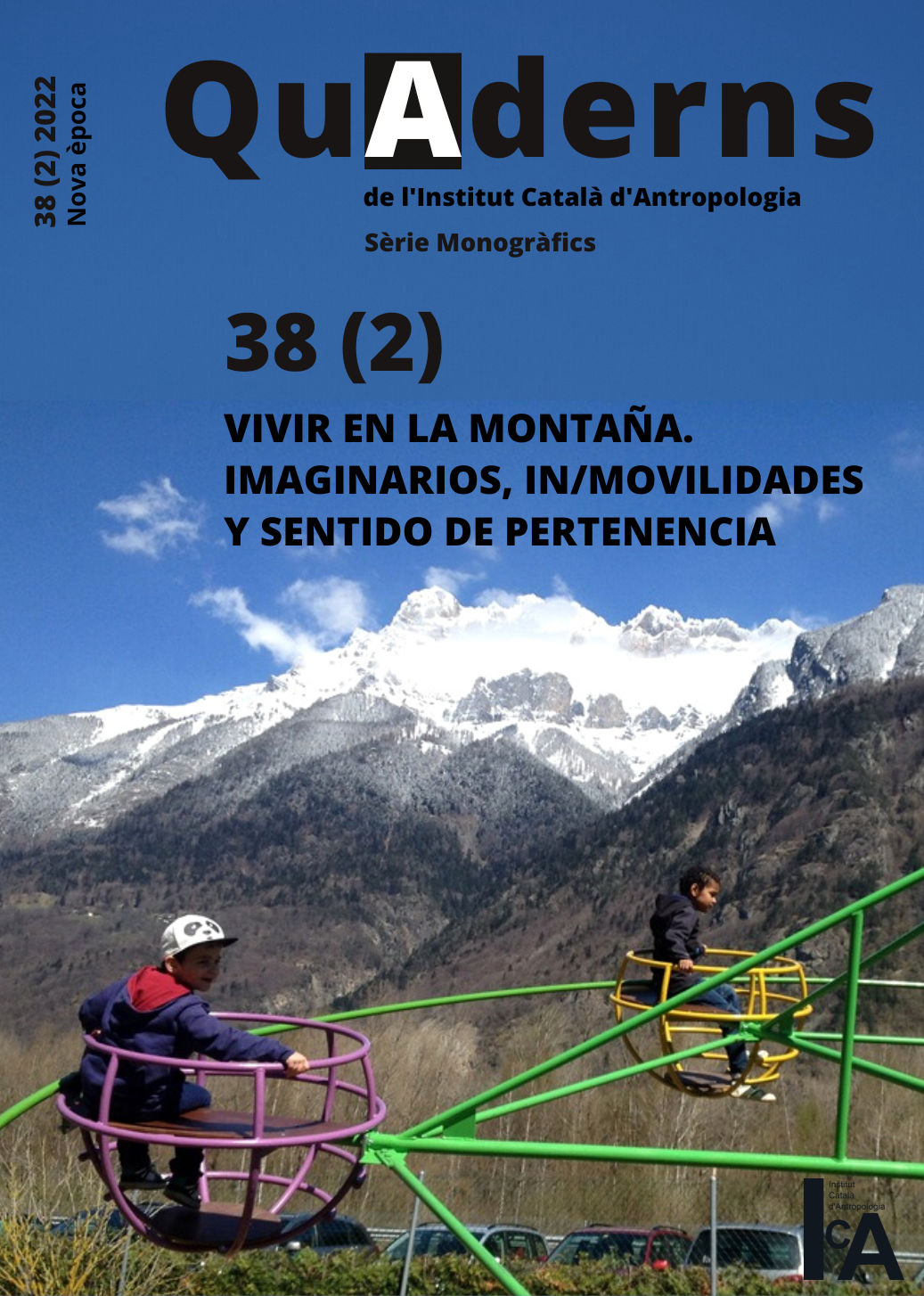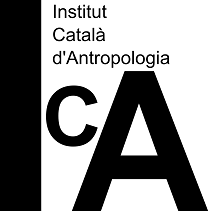Movilidades de Alta Montaña. Una etnografía de la temporalidad en la estación de esquí de la Val d’Aran
DOI:
https://doi.org/10.56247/qua.417Paraules clau:
migración estacional, condiciones laborales, pertenencias, industria del esquí, zonas de montaña, PirineoResum
Val d’Aran es un valle del Pirineo catalán que se desarrolló tempranamente como destino turístico vinculado a los deportes de montaña y, especialmente, al esquí. La turistificación del valle ha modificado los patrones tradicionales de movilidad estacional vinculados a la economía agroganadera. En el contexto de la globalización, las estaciones de esquí atraen turistas, pero también trabajadores temporales, que buscan muchas veces estilos de vida alternativos. El objetivo de este artículo es identificar el turismo de esquí como una actividad productora de movilidad estacional y de incorporación de nuevas pertenencias en una zona de montaña. En base a una investigación etnográfica nos proponemos definir los perfiles migratorios de temporalidad laboral en este valle, analizar las condiciones laborales de los y las trabajadoras estacionales y, por último, debatir cómo se producen las pertenencias en contextos de alta movilidad.
Descàrregues
Global Statistics ℹ️
|
505
Views
|
351
Downloads
|
|
856
Total
|
|
Referències
Adler, P. A., y Adler, P. (1999). Transience and the Postmodern Self: The Geographic Mobility of Resort Workers. Sociological Quarterly, 40(1), 31-58. DOI: https://doi.org/10.1111/j.1533-8525.1999.tb02357.x
Appadurai, A. (1996). Soberanía sin territorialidad. Notas para una geografía poscolonial. Nueva Sociedad, 163, 109-124.
Armesto, X.A., Gómez, M.B. y Cors, M. (2018) La transformación del mundo agrario en un territorio turístico de montaña. Las comarcas de Alta Ribagorça, Aran y Pallars Sobirà. Cuadernos Geográficos, 57(3), 267-290. DOI: https://doi.org/10.30827/cuadgeo.v57i3.6274
Bauman, Z. (2015). La modernidad líquida. Fondo de Cultura Económica.
Beltran, O. (1994). Es Aranesi. Adaptació a l’entorn i organització social al Pirineu central (Tesis doctoral). Universitat de Barcelona. http://hdl.handle.net/2445/35214
Benson, M. y O’Reilly, K. (2016). From Lifestyle Migration to Lifestyle in Migration: Categories, Concepts and Ways of Thinking. Migration Studies, 4(1), 20–37. DOI: https://doi.org/10.1093/migration/mnv015
Bianchi, R. V. (2000). Migrant Tourist-Workers: Exploring the 'Contact Zones' of Post-Industrial Tourism. Current Issues in Tourism, 3(2), 107-137. DOI: https://doi.org/10.1080/13683500008667869
Boscoboinik, A. y Cretton, V. (2017). Find your Nature in the Swiss Alps. In search of a Better Life in the Mountains. Český lid, 104(2), 199-212. DOI: https://doi.org/10.21104/CL.2017.2.02
Campillo, A. (2009). Nómadas cosmopolitas. Cuadernos del Ateneo, 28, 11-22.
Chege, N. (2019). ‘If You Give Me Time I Can Love You’: A Pregnant Researcher among Male Beach Workers on Kenya’s Liminal South Coast Beaches. Anthropology Matters, 19(1). DOI: https://doi.org/10.22582/am.v19i1.494
Comas d’Argemir, D. (2002). Andorra, una economía de frontera. Pagès editors.
Cretton, V. (2018). In Search of a Better World in the Swiss Alps. Lifestyle Migration, Quality of Life, Gentrification. En H. Horáková, A. Boscoboinik y R. Smith (Eds.), Utopia and Neoliberalism. Ethnographies of rural spaces (pp.105-125). LIT Verlag.
Friedli, A. (2020). Living in the Mountains. Mobilities, Forms of Residentiality and Local Identities of New Inhabitants of a Swiss Ski Resort. Via Tourism Review, 18.https://doi.org/10.4000/viatourism.5792. DOI: https://doi.org/10.4000/viatourism.5792
García Canclini, Néstor (1999). “De la identitat a la interculturalitat: l'Antropologia en la globalització”. Revista d'Etnologia de Catalunya, 15, 36-45.
Glick-Schiller, N. y Salazar, N.B. (2013). Regimes of Mobility Across the Globe. Journal of Ethnic and Migration Studies, 39(2), 183-200. DOI: https://doi.org/10.1080/1369183X.2013.723253
Hagimont, S. (2015). ‘Les processus d’appropriation touristique d’un territoire frontalier. La trajectoire du Val d’Aran (Catalogne, XIXe-XXIe siècle)’, Sud-Ouest européen, 39, pp. 31-44. DOI: https://doi.org/10.4000/soe.1845
Henningsen, E., Jordhus-Lier, D. y Underthun, A. (2014). The Resort as a Workplace: Seasonal Workers in a Norwegian Mountain Municipality. En D. Jordhus-Lier y A. Underthun (Eds.), A hospitableworld?: Organising work and workers in hotels and tourist resorts (pp. 121–136). Routledge. DOI: https://doi.org/10.4324/9781315796840
Holland, C. y Martin, E. (2015). Lifestyle Migration and Work Choices. Hospitality & Society, 5(1), 23-42. DOI: https://doi.org/10.1386/hosp.5.1.23_1
Levitt, P.y Glick Schiller, N. (2004). Perspectivas internacionales sobre migración. Conceptualizar la simultaneidad. Migración y Desarrollo, 3, 60-91. DOI: https://doi.org/10.35533/myd.0203.pl.ngs
Mansur-Días, G. (2014) The Experience of Guestworkers at a United States Tourist Resort. Vibrant. Virtual Brazilian Anthropology, 10(2), 198-228. DOI: https://doi.org/10.1590/S1809-43412013000200007
Oehmichen, C. (Ed.). (2019). Movilidad e inmovilidad en un mundo desigual: turistas, migrantes y trabajadores en la relación global-local. UNAM/Instituto de Investigaciones Antropológicas.
Offenhenden, M. y Soronellas, M. (2021). Mountain Tourism and Agriculture at the Crossroads: The Case of Cerdanya and Val d’Aran (Catalan Pyrenees). International Journal of Tourism Anthropology, 8(4), 304-319. DOI: https://doi.org/10.1504/IJTA.2021.123195
Ooi, N., Mair, J., y Laing, J. (2016). The Transition from Seasonal Worker to Permanent Resident: Social Barriers Faced within a Mountain Resort Community. Journal of Travel Research, 55(2), 246-260. DOI: https://doi.org/10.1177/0047287514546226
Pedreño, A. (2009). Turistas y migrantes en el planeta resort: la movilidad espacial de la población como un capital desigualmente distribuido. Áreas. Revista Internacional de Ciencias Sociales, 28, 9-18.
Perlik, M. (2011). Alpine Gentrification: The Mountain Village as a Metropolitan Neighborhood. Journal of Alpine Research, 99(1). https://doi.org/10.4000/rga.1370 DOI: https://doi.org/10.4000/rga.1370
Pujadas, J. J., Soronellas, M. y Casal, G. (2007). Cada casa és un món. Família, economía i arquitectura a la Cerdanya. Generalitat de Catalunya.
Rice, K. (2010). 'Working on Holiday': Relationships between Tourism and Work among Young Canadians in Edinburgh. Anthropology in action, 17(1), 30-40. DOI: https://doi.org/10.3167/aia.2010.170104
Roigé, X. (2006). ‘Identidad, turismo y frontera en el Valle de Arán’, in Frigolé, J. and X. Roigé (Eds.), Globalización y localidad. Perspectiva etnográfica (pp. 33-60). Universitat de Barcelona.
Sanllehy, M.A. (2012). El Banhs ed Les: un establiment termal de la Val d'Aran al segle XIX. Annals del Centre d'Estudis Comarcals del Ripollès, 23, 269-308.
Thorpe, H. (2017). ‘The Endless Winter’: Transnational Mobilities of Skilled Snow Sport Workers. Journal of Ethnic and Migration Studies, 43(3), 528-545. DOI: https://doi.org/10.1080/1369183X.2016.1190638
Thorpe, H. (2013). ‘Sex, Drugs and Snowboarding’: (Il)legitimate Definitions of Taste and Lifestyle in a Physical Youth Culture. Leisure Studies, 31(1), 33-51. DOI: https://doi.org/10.1080/02614367.2011.596556
Tuulentie, S. y Heimtum, B. (2014). New Rural Residents or Working Tourists? Place Attachment of Mobile Tourism Workers in Finnish Lapland and Northern Norway. Scandinavian Journal of Hospitality and Tourism, 14(4), 367-384. DOI: https://doi.org/10.1080/15022250.2014.967998
Turner, T. (2019). ‘Just Knocking out Pills’: An Ethnography of British Drug Dealers in Ibiza. Journal of Extreme Anthropology, 3(1), 102-120. DOI: https://doi.org/10.5617/jea.6694
Uriely, N. (2001). ‘Travelling Workers’ and ‘Working Tourists’: Variations across the Interaction between Work and Tourism. International Journal of Tourism Research, 3, 1-8. DOI: https://doi.org/10.1002/1522-1970(200101/02)3:1<1::AID-JTR241>3.0.CO;2-M
Urry, J. (2007). Mobilities. Polity.
Descàrregues
Publicades
Com citar
Número
Secció
Llicència
(CC BY-NC-SA 4.0)




